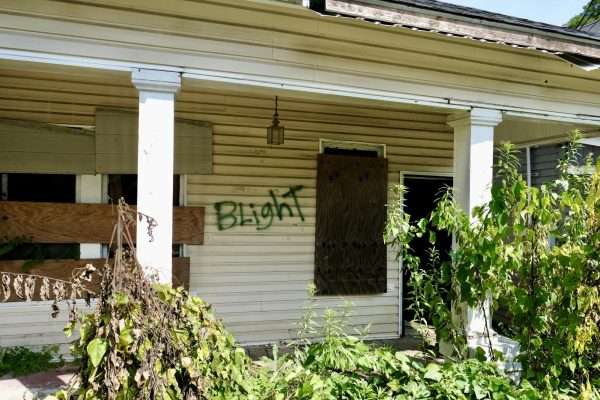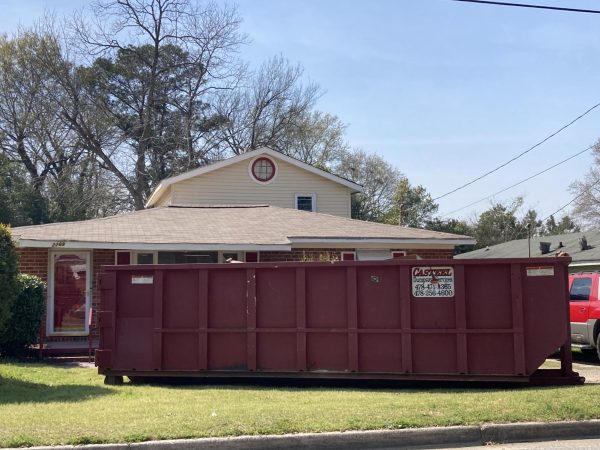Macon Water Authority producing award-winning water despite COVID-19 pandemic
The main entrance of the Water Treatment Plant lies several miles into the facility, past a bridge that takes people from the plant’s gate and over the Javors Lucas Lake.
When Macon-Bibb residents turn on the tap, they are getting some of the best water in the country.
The Macon Water Authority is nationally recognized for the quality and taste of its water. This includes a 2009 award for the Best Tasting Drinking Water in North America after having won the “Best of the Best” Tap Water Taste Test from the American Water Works Association.
How Does the Plant Operate?
According to the Water Authority’s main website, the plant distributes roughly 25.7 million gallons of finished drinking water every day to 51,000 customers. The plant accomplishes this using four clear wells that total 20 million gallons and 23 tanks that store 36.9 million gallons of water.
Gary McCoy, MWA Director of Water Treatment, explained the chemical and mechanical processes that contribute to the water’s great taste.
The plant treats water by collecting it from the Ocmulgee River and pumping it into the 5.8-billion-gallon Javors Lucas Lake where particulates and other chemicals settle out. Finally, a series of chemicals are added to ensure the safety of the final product.

“One of the key ingredients to us producing the best tasting water is our granular activated carbon filters,” McCoy said. “One grain of that carbon can absorb up to three football fields of organics. It also helps that our operators are treating nonstop.”
McCoy added that the MWA creates such great tasting water by going well above the expected number of quality tests.
“We are required by law from the Environmental Protection Division to conduct about 800 to 900 tests a month,” McCoy said. “But we go well beyond that, conducting about 9,000 a month to ensure that we give [our customers] the same quality of water all the time. It takes a little more work, but we have the welfare of the 160,000 residents to consider.”
Awards and Recognition
And their efforts seem to have paid off. Since its opening in 2000, the Amerson Water Treatment Plant has received the Best Operated “Plant of the Year” in the state by the Georgia Association of Water Professionals six times. McCoy said that plants may only win the Top Operator Plant of the Year award every other year, but since 2003, the plant has won it five times.
“What this is, is the best operating plant for the entire state of Georgia,” he said. “We have to compete with places like Gwinnett, Fulton, Savannah, all these systems we compete against. We’ve been very successful.”
The plant has also won the Plant Safety Award from the Georgia Section of the American Water Works Association three times. Additionally, the plant received a platinum award for the seventh year in a row, meaning that out of all the tests they perform, no safety violations were found.
“It’s just a trifecta, you’re producing a great tasting product, the employees are safe, and you don’t have any type of violation,” McCoy said.
Future Plans and Long-term Goals
The MWA, McCoy said, works to operate 10 steps ahead of what it needs, using the latest technology and systems to ensure they can provide quality water. The way their budget is set-up, the MWA does not rely on taxpayer money.
“All the revenue we collect is going back into the system,” McCoy said. “If I need a pump for $100,000 and I know it’s vital to the plant’s operations, I don’t have to go and beg and plead to the mayor.”
The MWA currently has plans to install a three-million-gallon tank in a system elevated storage area to make sure they have a good supply of water.
“We want to have that storage tank to give us the luxury if anything happened to the plant,” McCoy said. “We don’t want to just rest on what we have. We are looking at areas in our system that may require extra storage capacity.”
The water authority is also looking at a $3 million project to upgrade the plant’s fiber optic.
“I.T. is working to upgrade our safety measures, putting cameras all around. So we upgrade the water authority, so we can continue to actually address all areas within Macon-Bibb,” he said.

The Impact of COVID-19
Due to the COVID-19 pandemic, the MWA and treatment plant have both needed to make changes to their operations. McCoy said that a lot of the employees are working from home, which has impacted the customer care area. However, some people, like those who work in the plants and maintenance, had to work at the water plants in person. As compensation, each employee required to work in person was given $50 on top of their paychecks, an extra $1,000 added to their pay monthly.
“It’s a struggle right now, and the second wave is hitting us even harder,” McCoy said. “We’re not laying anyone off, but we allowed a lot of people that work from home. And so, we purchase a lot of computers for them to take home.”
McCoy said he wants the people of Macon-Bibb County to know that the treatment plant is still working to provide a safe product despite how hard times may be. He also wanted to put at ease those who believe COVID-19 may be found in their water.
“We’re doing all we can to keep our operators safe in order to work here and produce this water,” McCoy said. “When you open your faucet and drink from your water, there’s no way you’re going to catch corona. We just gotta keep looking down the road and into the future so we can continue to meet the needs of Macon-Bibb County.”



















